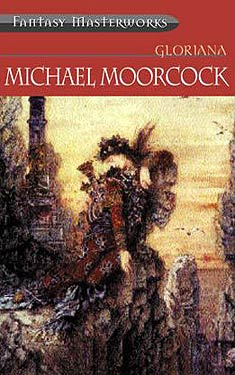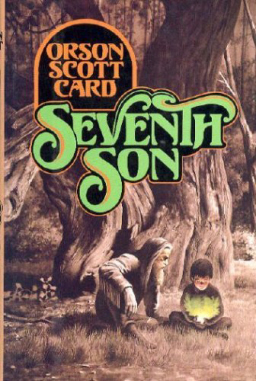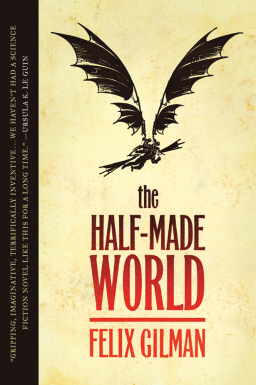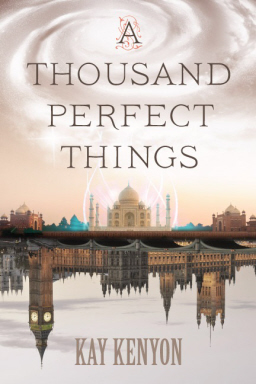Mucking with the Mundane
 Fantasy readers expect the world of a fantasy novel to be different from our mundane reality.
Fantasy readers expect the world of a fantasy novel to be different from our mundane reality.
There’s magic afoot — of course the world operates differently. The author paints the fantastical milieu and we enter it primed to believe, donning those 4-D glasses that let us accept strangeness. It’s a more-than-willing suspension of disbelief.
We don’t ask for justifications, as long as the fantastic elements of the world are internally consistent. It’s in the tradition.
But with fantasy as re-imagined history or a re-imagined place, we enter a slightly different relationship with the story. Now we’re in a realm that is accessed, not through a portal or straight immersion in a new world, but through a delicate balance of writer allusions and reader indulgence. Readers know they’re being seriously mucked with. And the author must go the extra mile to pull it off.
There’s something logically different about creating an imagined world — like Middle Earth — versus fiddling with the actual world and its history. After all, it already happened the way it did. So the reader must swim against the mental tide of a different narrative, that of history.
Depending on your preferences for justification, you may want an explanation of how it all came to be, or you may wish the author would just get on with it.
One way to coax the reader into abandoning “real” history is with parallel worlds. Michael Moorcock uses this framing device in Gloriana, the Unfulfill’d Queen, set in a twisted Elizabethan-style court and a very changed history.
 The world of Albion is not only a parallel world to our own, but one in which they are actively investigating other parallel worlds, or “spheres” (in which our doppelgangers exist).
The world of Albion is not only a parallel world to our own, but one in which they are actively investigating other parallel worlds, or “spheres” (in which our doppelgangers exist).
This is a minor thread in the story, despite the added detail that Albion has had visits from people from other spheres. The tidbits are wonderfully salted in to keep us from wandering back to our version of history.
In the Alvin Maker series, beginning with Seventh Son, Orson Scott Card uses a number of devices to strengthen his altered American West.
Using a technique that’s almost mandatory for science fiction alternate histories, Card posits what’s called a point of divergence in history that helps justify his world. (Cromwell banning people with psi powers from England, causing them to converge on America’s old west.)
Further, throughout the story, he makes strategic note of anomalies. It’s as though when the author notes the differences, the reader more readily believes.
Card goes on to lace the stories with anchoring details that bring the milieu into focus, such as the “Tom” Jefferson being president of the colony of “Appalachee,” and George Washington having been executed by the British. Verisimilitude is helped along by making references to historical figures who aren’t part of the plot but who seem to lend it validity.
If you’re in the less-is-more camp, you may prefer a bold move where the writer offers a completely unapologetic twist on the world. This is just how it is, the author seems to be saying, as Naomi Novik does with the Temeraire series, where dragons comprise a Napoleonic-era air force.
 This strategy works not only because of the mastery of the storytelling, but also because detailed back story explanations sometimes seem to “protest too much” and bring attention to the fact that the author is mucking about in what’s so, or what used to be so. An air force of dragons? Yes, quite.
This strategy works not only because of the mastery of the storytelling, but also because detailed back story explanations sometimes seem to “protest too much” and bring attention to the fact that the author is mucking about in what’s so, or what used to be so. An air force of dragons? Yes, quite.
Further down the scale toward “just get on with it,” are novels that make a virtue out of not telling. These novels achieve a lovely extra strain of mystery by keeping us guessing.
(I want to point to Felix Gilman’s Half-Made World, here, but I’ll leave it to others to ferret out whether that one is fantasy or science fiction.)
In stories like this, the author purposefully limits explanations in order to deepen our curiosity. It has the added attraction of freeing the story from information dumps. A more psychological way of looking at these omissions is that it may have the effect of seducing the reader into filling in the blanks with his or her imagination.
I heard Terry Brooks’s advice on this approach once. It avoids goose-feeding the reader who in any case wants to believe and isn’t in a mood to argue. It doesn’t excuse laziness or bad writing, of course. The story must still succeed as a whole and in each of its fantastical parts.
Still, most alternate histories will need to round out the story with some clues and guideposts that help the reader over the hurdle of it already happened the other way.
A case in point is Jeffrey E. Barlough’s Western Lights series. I haven’t yet read Barlough (in my pile), but Jackson Kuhl’s interview with the author reveals how Barlough made changed history credible in What I Found at Houle. He uses small but critical details, such as the plausible absence of gunpowder in the world, thus helping to bolster how gigantic mammoths might have survived.
 At the same time, there is so much that Barlough “purposely kept rather vague” in his mash-up of mystery and fantasy. I’m really looking forward to reading the first in the series to see how he pulls it all off.
At the same time, there is so much that Barlough “purposely kept rather vague” in his mash-up of mystery and fantasy. I’m really looking forward to reading the first in the series to see how he pulls it all off.
I’m particularly fascinated by this weaving of “what if” history with fantasia. My first fantasy, A Thousand Perfect Things asks the reader to believe that a place that seems very much like 19th century England has developed a rigidly scientific viewpoint — and furthermore, that a place that might be India is the land of magic.
Magic is savage and vulgar, anathema to the men of science who dominate England. These viewpoints are so rigid that in fact there are no other continents, just these two, incompatible, inimical… and now joined by a great bridge.
And, then, since there was no Rome — or Europe — the scientific use of Latin comes from a long buried culture of ancient England. We note how the predations of kraken limit England’s ambitions to a navy, thus making a Great Bridge essential for trade — and off we go, starting to believe it a little more with every page.
Or so I hope! In fantasy, the justifications for re-imagined histories and twisted geographies range from elaborate world back-stories to the simple, bold twist.
It’s amazing to me how flexible and inventive our genre and its readers are. Some people have trouble enough with magic, much less fiddling with actual history; to us fans, it’s just part of the fun.
After ten science fiction novels, Kay Kenyon’s first fantasy novel, A Thousand Perfect Things, is forthcoming in August as an eBook and in print from Premier Digital Publishing. The book is an epic tale of magic in a re-imagined England and India, when a Victorian woman takes on the scientific establishment, palace intrigues, ghosts and a great mutiny — by marshaling the powers of magic. She talks about books and writing on her blog, at www.kaykenyon.com.
>>And, then, since there was no Rome — or Europe — the scientific use of Latin comes from a long buried culture of ancient England>>
Wait, what? Now I really want a look at your timeline and history…and map!
It is strange, I grant you! What would you expect from the woman who wrote (in Bright of the Sky) about a universe that is a tunnel?
[…] event in Seattle with Greg Bear, with Terry Brooks in Portland. Thanks to John O’Neil of Black Gate Magazine, Susan Wingate, Larry Brooks, Bryan Thomas Schmidt, Tim Ward & John Dodds and so many more. […]